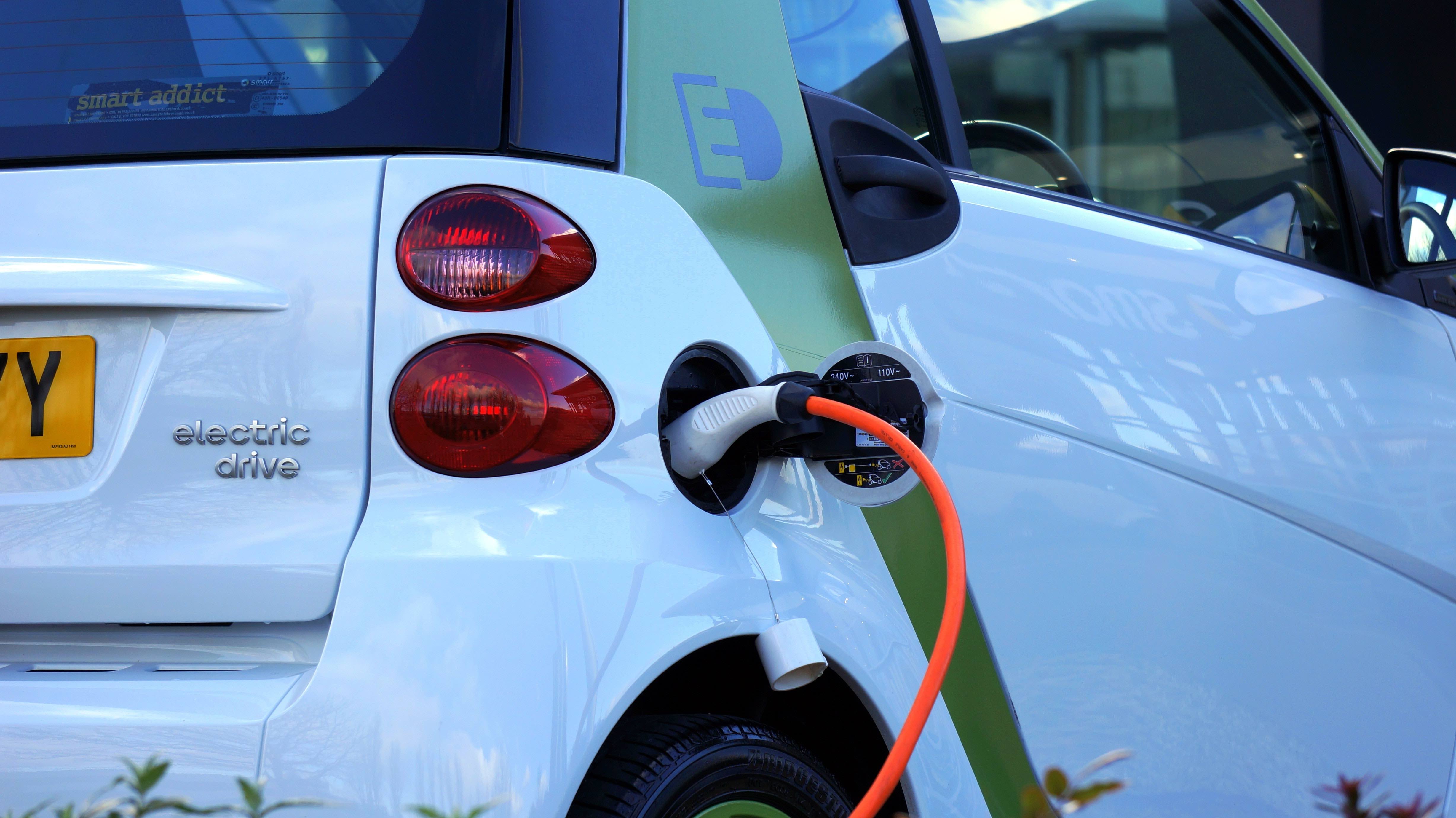How the US loses to China

For a generation or two, the US and China have been in a geopolitical waltz of diplomacy, trade war, and animosity as the two world powers attempt to hold onto and gain new global influence. Ironically, America's unceasing consumerism and profit incentive and China's logistical ability to meet these demands have increased the economic prosperity of both countries, creating this sort of frenemies dynamic where they don't really like each other, but they also can't just leave each other. But recent developments, including advances in China-based consumer electronics, automobiles, and AI, and a frantically employed "America First" agenda from the new federal order, could serve to disrupt the lock step dance. We may be entering into a transformational new period. What have we seen, what can we see from here, and what will it all mean?
Implicit to all of my writing is a sincere, deeply held belief: people are not their governments. It is one of the foundational human-first principles I attempt to live by, and through which I make my analysis. I am an anti-nationalist. I want to be clear that the modern Chinese government has engaged and continues to engage in, to name a few examples off the dome, genocide/ethnic cleansing, censorship, imperialist expansionism, threats to dissidents and journalists, election interference, torture, and forced labor. None of the following statements made are in any way an endorsement of the actions of a totalitarian, surveillance state. I am simply seeking to make important observations about where things stand and where things could go.
Along those lines, I also have no interest in exempting the American federal government and its current round table of oligarchs from its own complicity in genocide/ethnic cleansing, censorship, imperialist expansionism, etc. I am not on the side of the United States or the CCP. I am on the side of regular-ass people just attempting to live healthy, fulfilled lives with their friends and families, no matter where they happen to have been born.
Now let's talk tech.
US reluctance to promote healthy competition and fund meaningful innovation could cause the country to lose influence in three key technological spaces: electric vehicles, AI, and consumer electronics. Here's some evidence for China's growing influence in tech.
EVs
Because of significant CCP investment, control of important metals for production, low labor costs, and the development of a middle class, China's EV market is exploding. In 2019, EVs made up 5% of all new cars sold in China. In 2023 it was 38%. Over the same period of time, the US share of new EVs sold out of all vehicles sold climbed from 2% to just 9.5%.
Incontrovertibly and undeniably, electric cars must be the future of personal transportation. Whether you believe that future is the next 5 years or the next 50, we must divert away from ICE vehicles if we are to sustain the number of people who want to or need to drive while curtailing the impact of fossil fuel consumption.
China's growth in the EV market is not just reserved to its own borders.

There are some more technological or economic ways in which China's growth in the EV sector reflect better on it than on the US. Clearly, the manufacturing capacity of the Chinese makers outpace that of the American and even European ones, which has meant that Chinese customers are not faced with the long wait times and high prices often associated with American electric vehicle purchases. Additionally, the Chinese EV infrastructure, including service shops, charging bays, and battery replacement facilities, vastly outpaces the US's.
(Here is where I note that the totalitarian power of the CCP makes possible certain requisitions of otherwise private or publicly accessible land for this infrastructure that is more frowned upon in the United States. Hard to just roll up to a gas station owner in the US and look around and say "This is ours now, actually, and we're gunna make it a charging station.)
Also, Chinese EVs are gaining a reputation as being more fun, innovative, and cooler than American/European made ones. Just check out the glee with which this popular American car reviewer talks about a pretty regular degular Chinese EV:
@forrestsautoreviews $53K as is if this were converted to USD. Would you get this over a Tesla Model Y? 🤔🤷🏽♂️ • • • • • #liauto #liautol7 #chinesecar #luxurycars #ev #electriccar #foryoupage #foryou #cartok
♬ Jazz Bossa Nova - TOKYO Lonesome Blue
This is something I will keep returning to, but I believe it's extremely important to recognize the value of branding, perception, and social influence as it relates to Chinese EV proliferation.
During the 20th century, the US began to exert extensive soft power around the globe in the form of its most "American" brands and iconography. For example, Levi's Jeans found an audience in Southeast Asia as American GIs wore the brand while stationed in Vietnam. You can find the influence of American brands like Ford, Coca-Cola, and Apple in other corners of the world. American global influence, while certainly upheld by a multi-trillion dollar network of army bases and military power, can often be most effectively exerted in these forms of soft power, where branding and quality products actually interface with normal, everyday people.
The failure of US companies to meet the moment may have generational rippling effects in the stature of one of America's most important industries.
AI
I have already written about the stakes of the DeepSeek disruption to the American AI industry. Since then, more Chinese companies, including one called Manus, have burst onto the scene.
To summarize so as not to repeat my previous post, China's developments in AI come as a result of sincere educational investment (mostly at the college/graduate level) and true "making more with less" innovation.
The results of all of this AI stuff is still very much in the air, but as more and more companies integrate AI into their products and services, the price and efficacy of some of the Chinese models are enticing. Just this week, the American computer company Framework boasted about how well its new desktop could run an open source AI model. The open source AI model they chose to call out for this? DeepSeek's.
As the American companies focus on gobbling up more money and sidling up to the federal government, I worry that they might miss the important economic goals that the Chinese companies are already targeting: cheaper, more efficient AI. In an era of rapid adoption, this should be extremely concerning to anyone invested in US "dominance" globally.
Consumer Electronics
Some of the world's most ubiquitous consumer electronics companies are based in and manufacture in China. In the United States, Chinese brands like Anker (chargers), DJI (drones), Hisense (televisions), TCL (televisions), and Lenovo (laptops) are extremely popular. While the iPhone dominates market share of the US smartphone ecosystem, Google's Android system dominates globally. Many of the world's most popular Android smartphone brands are Chinese, including Xiaomi, Huawei, OnePlus, ZTE, and OPPO.
It's important that I state, again, that I am not making these statements as warnings or judgements, but rather as observations of readily available information.
In the domain of consumer electronics, I am skeptical that consumers have the same sense of branding or culture that may derive from automotive brands, thus I am uncertain that these strong footholds indicate a meaningful difference in the soft cultural power of China. But these economic advantages still cannot be ignored.
Another thing that can't be ignored is China's looming threat over Taiwan, the island nation that produces something like 9 out of 10 of every microchip on the planet. Should the country look for further justifications to enable a warmongering land grab, the success and survival of their consumer electronics industry could be one.
The current Trump administration is hell bent on a pseudo-historical, hysterical megalomania known as "America First." This ethos is the motivation behind the president's "stop hitting yourself"-ass tariff tiffs, the pathetic cuts to global aid, and Elon's forays into corruption to ensure the success of his businesses. In getting the American oligarchy to bend the knee, lick the boot, and fall in line, Trump is facing little meaningful opposition to the tax cuts, price increases via tariff, and labor deprivation via mass deportation that his actions foretell.
This kind of bloviating, misaligned, pathological agenda is directly disruptive to America's continued ability to compete, particularly with China. In order to win back the EV fight, the federal government should re-up commitments to that industry, not pull funding. To compete globally on AI models, the US must invest in education (via university funding or H-1B visa distribution) and invention to reduce costs/boost efficiency, not make education more expensive, immigration more cumbersome, and electricity more expensive. To win back leverage in the consumer electronics world, the US should aim to stoke competition against the main industry players, not increase the costs of parts sourcing and acquisition.
In order to retain any semblance of admiration amongst populations in the global south such as in South America or Africa, the US certainly should not pull funding and support from the very things that bring us the soft influence that helps support the US's existence.
At the end of the day, though, all of this presupposes an inherent interest on the part of Trump, Musk, and their genuflectors to get America "back" to some sort of mythic, world dominating point. It's the basic idea to, y'know, make America, y'know, great. But these myopic grifters are in this for themselves, and are looking to advance their own personal interests, whether that's businesses, crypto wallets, or power. While they may not concede this, the actions they are taking will result in a weaker US, one that does not exert its influence in avenues it has in the past. A dumber, less wealthy, less technologically advanced American people is one that lines oligarch's pockets, not one that meaningfully contributes to a better world, whether America is at the center of it or not.
Since this is a tech/culture/media newsletter, I just wanted to focus on those things when presenting evidence of one country's rising tide of influence, potentially over the other. There are a number of other ways to peel this banana. At the end of the day, it is important to remember that there are people, just like you, sitting around the globe today, and the only way through the future is together. The powers that want to compartmentalize and exploit are inherently oppositional to that idea, and no matter where their borders lie or what their stock ticker is, technology and information wants to be free. And I'm hopeful it will be.






